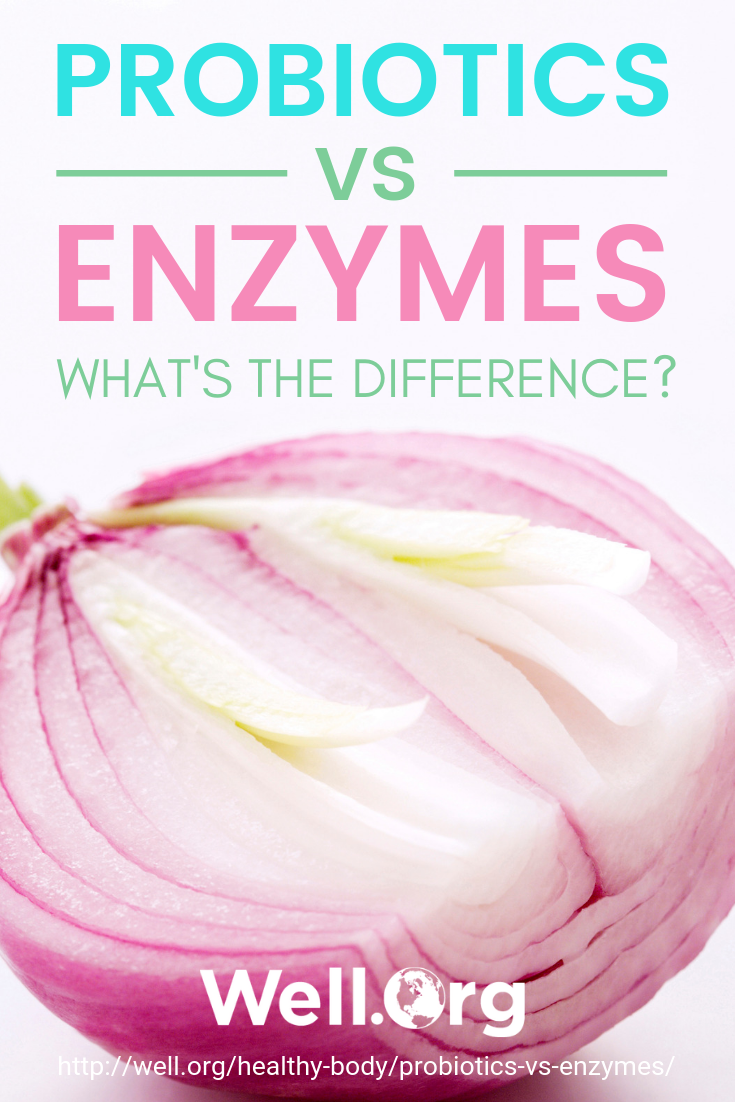Table of Contents[Hide][Show]
What Are the Health Benefits of Probiotics?+−
- 1. Can Help Prevent or Treat Diarrhea
- 2. The Best Probiotic Supplements Can Aid in Relieving Mental Health Issues
- 3. May Reduce the Severity of Eczema in Children
- The Link Between Your Gut and Healthy Skin
- 4. May Help Alleviate Symptoms of Certain Digestive Disorders
- 5. Can Aid in Losing Weight Through Non-Absorption of Dietary Fat
- 9 Foods To Help Get Rid Of A Muffin Top
How Will Digestive Enzymes Benefit Your Body?+−
- 1. Enzymes Can Reduce Stomach Bloating Due to Indigestion
- 2. Enzymes Can Increase Your Body’s Metabolic Rate for Better Blood Circulation
- Easy Ways To Speed Up Digestion And Metabolism Naturally
- 3. Enzymes Can Reduce Inflammation Through Proper Protein Digestion
- 4. Enzymes Can Contribute to Better Calcium Absorption for the Bones
- What Foods Are Rich in Probiotics and Enzymes?
See significant improvements on your overall health and wellness when you feed your body with the best probiotics and enzymes.
Digestive Enzymes vs. Probiotics & Your Gut Health
No wonder gut health is such a hot topic. According to a recent report by the National Institute of Diabetes and Digestive and Kidney Diseases, digestive disease contributes to a total of 72 million doctor visits, hospitalizations, or emergency admissions in the U.S. alone.
So, there’s a good chance, at some point in your life, you’ve been told to take the best probiotic or digestive enzyme as a dietary supplement. No, they’re not “quack remedies.”
You may be consuming them already—just not in pill or powdered form. But what’s the difference in digestive enzymes vs. probiotics.
Depending on your health and lifestyle, upping the probiotic and enzyme factor in your diet can help prevent a swathe of digestive illness or even relieve a few ongoing discomforts you thought you’d have to just live with.

What Are Probiotics?
Not all bacteria are bad bacteria. In fact, nearly every important bodily function requires a balance of certain, beneficial bacteria to work properly.
When something—like medication, sickness, genetic predisposition, or the trappings of modern life—throws this balance out of whack, you may find yourself at risk of obesity, stomach upsets, chronic inflammation, depression, autoimmune disorders, and a range of other illnesses.
What we call “probiotics” are naturally occurring good bacteria that help create a healthy gut microbiome, aid digestive health and crowd out harmful or disease-causing organisms.
Examples of probiotic bacteria include the immunoprotective and antimicrobial Lactobacillus acidophilus found in yogurt, Bifidobacterium bifidum, whose digestive activities aid in the body’s absorption of minerals, and Streptococcus thermophilus, a friendly strain of strep that helps with lactose digestion.
You’ll find probiotics in fermented foods like kefir, yogurt, miso, natto, sauerkraut, kombucha, and even some craft beers.
Interestingly, dark chocolate may also offer some probiotic effects. Although not a probiotic itself, chocolate has been found to protect probiotic bacteria on their journey through the stomach and small intestine. This results in higher populations of those good bacteria in the digestive tract.
The best probiotic foods or clinically-proven supplements are generally safe for most people. However, if you have a weakened immune system (through genetics, disease, or medical treatment) or if you’re pregnant or breastfeeding, consult your doctor before adding new probiotics to your diet.
Related
Is It Safe to Take Probiotics While Breastfeeding?
Learn about the health-supportive power of probiotic bacteria as well as what you need to know about probiotics and breastfeeding.
What Are Enzymes?
Enzymes are proteins (chains of amino acids) that drive chemical reactions in the body. It seems just about all our internal functions use enzymes, from flexing our fingers to adding two numbers, and according to a recent study in mice, maybe even feeling full after a meal.
Digestive enzymes, produced in the pancreas, help break down food into simpler compounds including amino acids, fatty acids, simple sugars, cholesterol, and nucleic acids. These simpler compounds make them more available for the body to process and absorb, making it easier to digest food (especially fats, proteins, and carbohydrates).
The major enzyme groups you might have heard of include proteases and peptidases that break down proteins, lipases that break down fats, and amylases that break down starches and sugars.
You’ll typically find one or more of these types in varying quantities in commercially produced supplements. Well.org is particularly impressed with the powerful enzymes in the Just Thrive Gluten Away.
Do enzymes actually work? The chemistry certainly does.
However, some of the ones you swallow might not hang around long enough to do any good. Like other proteins, enzymes can easily end up getting digested themselves.
To get around this problem, manufacturers may design their supplements with an enteric coating, making it more likely the enzymes will make it past the initial digestive process.
Enzyme therapy already exists for conditions such as pancreatic insufficiency and lactose intolerance. Some high-performance athletes and bodybuilders take specially formulated enzymes to increase the bioavailability of protein for muscle repair.
For everyone else, the right enzymes may be helpful in relieving a host of digestive issues or general discomfort. However, if you are looking for an alternative to supplementation, you may get similar benefits with just a few adjustments to the food you eat. Be sure to talk to your doctor before making major changes to your diet.
Related
Enzymes… A Health Miracle?
Without enzymes, sentient organisms wouldn’t exist. They are necessary for most biological processes, including optimal digestion and nutrient absorption. Read on to learn more about the types of enzymes and what they do.
What Are the Health Benefits of Probiotics?
Aside from balancing bacteria in the gut, probiotics have many other health benefits such as the following.
1. Can Help Prevent or Treat Diarrhea
Diarrhea is a common side effect of taking antibiotics because antibiotics disturb the balance of bacteria in the gut. One study revealed that probiotics are linked to a reduced risk of antibiotic-associated diarrhea.
Not only that, certain strains of probiotics can also aid in treating diarrhea not associated with antibiotics.
A study showed that these friendly bacteria also lowered the risk of diarrhea by 8% among travelers. The study also indicated a lowered risk of the same disease from other causes by 26% in adults and 57% in children.
Additionally, probiotics can also help to relieve constipation and make you more regular.
2. The Best Probiotic Supplements Can Aid in Relieving Mental Health Issues
In a review of 15 human studies, it was found out that supplementing participants with Bifidobacterium and Lactobacillus strains for 1 to 2 months can help in improving behaviors in people with autism, depression, anxiety, and other psychiatric disorders.
One study observed that 70 chemical workers who took probiotic capsules and consumed 100g probiotic yogurt daily for six weeks experienced improvements in general health, stress, anxiety, and depression.
3. May Reduce the Severity of Eczema in Children
Probiotics may also help reduce the severity of eczema in children and infants. One study revealed that infants fed with probiotic-supplemented milk experienced eczema symptoms improvement compared to those who do not.
Another study showed that children of women who took probiotics during pregnancy had an 83% lower risk of having eczema in the first two years of their life.
Related
The Link Between Your Gut and Healthy Skin
Good Skin From Within The story is all too common. You have the perfect skincare routine, the best lotions and potions, you keep up to date all the latest tips and trends, but you still have issues with your skin. It’s not your fault, trust us. It’s your gut’s. The skincare industry would love for …
4. May Help Alleviate Symptoms of Certain Digestive Disorders
One study found out that Bifidobacterium and Lactobacillus strains helped improve symptoms in those with mild ulcerative colitis.
Research revealed that these good bacteria can also aid in relieving symptoms of gastrointestinal disorders like irritable bowel syndrome (IBS).
5. Can Aid in Losing Weight Through Non-Absorption of Dietary Fat
Probiotics can also do wonders in weight loss by preventing the absorption of dietary fat in the stomach. The fat is then released through feces rather than stored in the body.
A study showed that women on a diet who took Lactobacillus rhamnosus for three months lost 50% more weight than those who did not.
Related
9 Foods To Help Get Rid Of A Muffin Top
Do you want to know how to get rid of your muffin top? Start with these nine delicious and nutritious foods for a smaller waistline and a flatter belly!
How Will Digestive Enzymes Benefit Your Body?
Digestive enzymes also have some important health benefits to highlight. Let’s take a look at the top four.
1. Enzymes Can Reduce Stomach Bloating Due to Indigestion
The primary cause of stomach bloating is indigestion. Enzymes work by helping your digestive system to break down the food you eat into tiny substances so it can be easily absorbed by the body.
Food intolerances can occur due to a lack of a specific enzyme. For example, there’s a natural enzyme that can help reduce lactose intolerance, called lactase, which breaks down the simple sugars in dairy products and makes them easier to digest.
This is the reason why boosting your enzyme supply is important in your digestive function to promote proper digestion.
2. Enzymes Can Increase Your Body’s Metabolic Rate for Better Blood Circulation
Because enzymes help break down the foods you eat, they also enhance your metabolic rate. When your metabolism is fast, it promotes better flow and circulation of oxygen supply throughout the body.
Related
Easy Ways To Speed Up Digestion And Metabolism Naturally
Do you want to know how to speed up digestion? These 14 tips will help you do just that plus improve your metabolism in the process.
3. Enzymes Can Reduce Inflammation Through Proper Protein Digestion
Proteolytic enzymes help in the digestion of protein in the body that may also aid in reducing symptoms of inflammation related to inflammatory conditions.
A review of 10 studies found out that the proteolytic enzyme bromelain was efficient at reducing joint stiffness, swelling, and pain in patients with osteoarthritis. The same enzyme was also effective in lessening inflammation caused by sinusitis where the nasal passages swell.
4. Enzymes Can Contribute to Better Calcium Absorption for the Bones
The enzyme gamma-glutamyl carboxylase is responsible for activating osteocalcin, a protein that places calcium in the bones. Consuming foods rich in enzymes can help increase the supply of this protein to promote good bone health.
What Foods Are Rich in Probiotics and Enzymes?
To get more probiotics and enzymes naturally, here is a list of foods you can add to your diet.
Probiotics:
- Yogurt
- Kefir
- Sauerkraut
- Tempeh
- Kimchi
- Miso
- Kombucha
- Pickles
- Traditional buttermilk
- Natto
Enzymes:
- Pineapple
- Papaya
- Mango
- Honey
- Bananas
- Avocados
- Kefir
- Sauerkraut
- Kimchi
- Miso
- Kiwifruit
- Ginger
Since items like kimchi, sauerkraut, and kefir are present on both lists of the best probiotic and enzyme foods, it would be great to include them regularly in your meals. You can also have the other items on the lists if you want to have a diversity of foods.
When Is the Best Time to Take a Probiotic or Enzyme Supplement?
If you are taking supplements for probiotics or enzymes, the question of when the best time to take it is not the issue, but it’s how you take it. Taking the supplements with or without food is more important because of the pH balance since the probiotics’ survival depends on it.
An empty stomach means it is acidic, which lessens the survival of microorganisms. Taking probiotic supplements with or right after a meal is ideal because it raises the pH level of the stomach, making it less acidic, hence, aiding in the survival of the probiotics.
Additionally, because survivability is critically important to the overall effectiveness of any probiotic, make sure that you’re choosing a probiotic supplement that is proven to survive. For 100% guaranteed survival rate, this is the probiotic supplement that we endorse.
In the case of digestive enzyme supplements, it may be best to take stool testing first to measure how healthy your digestive system is. Consult your physician about the results so you will know if you need to improve your enzyme supply through supplementation. .
Your doctor can tell you when is the best time to take enzyme supplements and how to take them properly.
Knowing the difference between probiotics and enzymes can help you better understand how they function in the body and their benefits. Although you can find the best probiotic and enzyme sources in foods or supplements, it’s still best to consult your doctor for medical advice if you are unsure of whether you need more protein or good gut bacteria.
You May Also Like…
Editor’s Note: This post was originally published on April 3, 2017, and has been updated for quality and relevancy most recently on July 16, 2021.









